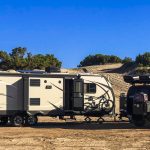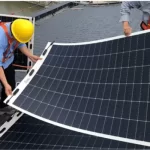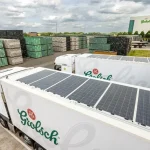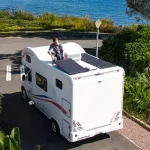Need solar power for your refrigerator? You’ve come to the right place. After all, in this day and age, solar energy is the ultimate solution, whether it’s to save money on your electric bill or to get off the grid.
Buying solar power for your refrigerator is a tempting but seemingly simple task. That’s why you need to know how much electricity your refrigerator consumes and the corresponding solar panel output before you make your purchase.
We’ll also discuss a few features of solar systems that you need to keep in mind. We are here to tell you if a 100 watt solar panel can power a refrigerator. You will find out how many watts are needed to power a refrigerator and what additional equipment is needed to do so.
You will also find answers to other frequently asked questions about 100 watt solar panels.
So, what are you waiting for? Read on!
Understanding Refrigerator Power Consumption
First of all, before you buy a solar refrigerator, let’s understand the factors that affect the amount of power needed to power your refrigerator.
1. Size
What size refrigerator do you own? Everyone has a different size refrigerator depending on our daily needs, and each size has different power requirements.
You need to know their power consumption to ensure that you buy the right solar refrigerator.
You can find the average power consumption of a refrigerator in its owner’s manual. Additionally, refrigerators require higher starting power, so you need to make sure that your refrigerator’s solar power is able to meet this requirement.
| Refrigerator Size | Average Power Consumption | Starting Watts |
| Mini Refrigerator | 70W to 90W | 280W to 360W |
| Standard Refrigerator | 90W to 180W | 360W to 720W |
| Side-by-side Refrigerator | 180W to 200W | 720W to 800W |
2. Energy ratings
Next, we want to find out the energy efficiency rating of your refrigerator. Look for the Energy Star® label on your refrigerator.
You may not think this little piece of paper is important, but its reading plays an important role in whether your refrigerator is cost-effective.
A high start-up rating indicates that your refrigerator is energy efficient, meaning that it doesn’t consume much power while running. On the contrary, a low start-up rating indicates low energy efficiency.
3. Usage Patterns
The usage pattern of your refrigerator also affects its power consumption. Your regular usage patterns are behaviors that you usually do unconsciously. But now you need to start paying attention to them to understand how they consume power.
For example, how many times a day does the door of your refrigerator open? What is the temperature setting of your refrigerator? If you open your refrigerator door often and have a high temperature setting, be aware that these actions consume power.
4. Compressor Cycle
Compressor cycling determines when the refrigerator cools. Of course, the longer the compressor cycle runs, the more power it consumes. On the other hand, if the compressor is run strategically, less power is consumed.
You need to understand the compressor cycle of your refrigerator. You can then take effective measures to ensure that you reduce its usage to save on your electricity bill.
How much electricity can a 100-watt solar panel produce?
Calculating the power output of solar panels can be tricky. In general, a 100 watt solar panel can produce 400 watt-hours of electricity per day.
100 watts of solar power can provide about 5 amps of electricity per hour. But this is limited to direct sunlight.
What is the output of a 100 watt solar panel on a cloudy day?
The solar panel will still work on a cloudy day. The output of a 100 watt solar panel on a cloudy day is estimated to be about 10-25% of the normal output.
If you want to keep your refrigerator running with a 100 watt solar panel, you will need to charge the battery on a cloudy day.
Can a 100 watt solar panel power a refrigerator?
You now know that a 100-watt solar panel can produce an average of 400 watt hours of electricity per day.
An average refrigerator with a freezer compartment requires 2,000 watt-hours of electricity per day to operate.
A 100 watt solar panel may be able to run a refrigerator for a short time, but it requires batteries. Generally, a 100-watt solar panel alone will not generate enough daily power to keep food cold at all times.
You may need three or four 100-watt solar panels to do the job. Four 100-watt solar panels may be the safest option for optimal refrigerator operation.
On sunny days and in the summer, two solar panels are enough. In the winter, you may need four.
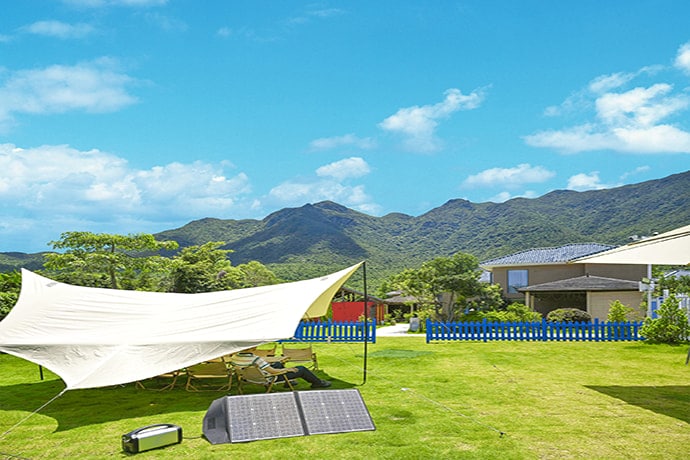
Can a 100 watt solar panel run a refrigerator(12v)?
A 12v camping refrigerator is a great addition to any solar powered home or RV. It’s a very handy device, and it’s very common to power a 12v compressor refrigerator with solar energy.
However, please note that a 12v refrigerator will consume up to 60% of its power.
You can run a 12v compressor fridge from a 100 watt solar panel, but it must be connected to a battery.
Usually, a 110Ah battery will do the job, but your compressor fridge will need to be specifically designed to fit.
Let’s say your 100 watt solar panel has two batteries and it is trying to charge to over 50%. This equates to an average of 600 – 700 watts per day.
In that case, the fridge could run all day. But it will take you two days to recharge the batteries.
What do I need to power my refrigerator with a 100-watt solar panel?
You may need additional equipment to run a refrigerator with 100-watt solar panels. Just make sure they are appropriate for your refrigerator model.
Some of the additional equipment for your solar unit includes batteries, an inverter, and a solar charge controller.
Batteries
Batteries are an essential addition to your solar unit, and without them, your refrigerator may not be able to run continuously.
The amount of power produced by solar panels may vary depending on the amount of sunlight received. Batteries come in handy when you want to power your refrigerator at night or on cloudy days.
Inverter
An inverter is an electrical device that converts the direct current (DC) from a battery into alternating current (AC).
This is because AC power is supplied to homes and industries through the main public grid. However, batteries can only store DC power. This needs to be converted to AC.
The power of the inverter you use should be 10 times higher than the actual wattage needed to run the refrigerator.
Other smaller household appliances and 12v compressor refrigerators do not require an inverter.
What can a 100 watt solar panel power?
Can a 100 watt solar panel run an air conditioner?
While 100-watt solar panels can be used to keep food cold, you may find yourself sweating in warm weather and wondering: can a 100-watt solar panel run an air conditioner?
Unfortunately, a single 100-watt solar panel cannot run most air conditioners.
Can a 100 watt solar panel power an RV?
A single 100 watt solar panel can produce 400 watt-hours of electricity per day after 4 hours of peak sunlight. For this reason, you will need up to three 100-watt solar panels to power your RV.
Unfortunately, there is a catch. Keep in mind that the RV will consume additional power and will need to be powered at the same time. You may need twice as many 100-watt solar panels, or six.
Are 100-watt solar panels enough for an RV? Not really.
Unfortunately, most RVs can’t manage 600 watts of solar power. You may need to consider other methods, such as increasing battery capacity.
Sungold 100W Solar Panel
The Sungold BXF Series 100W 12V Monocrystalline Solar Panel is powerful and small, perfect for any off-grid application.
The 100 watt solar panel is perfect for RVs, campers, cabins, marine areas, and as a home backup power source.




